11 Commonly Asked Questions About an Advance Health Directive in Queensland
Life can change in an instant. An accident or sudden illness could leave you unable to communicate your healthcare wishes. In Queensland, an Advance Health Directive (AHD) ensures your voice is heard even when you can’t speak for yourself. This legally binding document protects your rights, guides your care, and spares your loved ones from making difficult decisions without clear direction.
Despite its importance, only 14% of older Australians have a legally binding directive, according to a 2021 study in Health Expectations. So, do you need one? In this article, we’ll answer that question and address other common concerns about Advance Health Directives.
What Exactly is an Advance Health Directive?
An advance health directive in Queensland is a legal document that allows you to make decisions about your future medical treatment in advance. Created under section 35 of the Powers of Attorney Act 1998 and supported by Section 35 of the Guardianship and Administration Act 2000, this powerful document comes into effect only when you lose capacity to make or communicate decisions.
Even in circumstances when you cannot speak for yourself, an advance health directive allows you to:
- Provide specific instructions about medical treatments you consent to or refuse
- Document your personal values and preferences regarding healthcare
- Appoint one or more trusted individuals (attorneys) to make health decisions on your behalf
- Outline your wishes for end-of-life care
Unlike casual conversations with family members about "what you would want," an advance health directive Queensland health professionals must follow is legally binding (with certain specific exceptions). This means your documented wishes take precedence over what others might think is best for you. However, health professionals may not follow a directive if it conflicts with good medical practice or if circumstances have significantly changed.
Why Should You Consider Creating an Advance Health Directive?
Many people put off creating an AHD, thinking, "I'm healthy now" or "My family knows what I would want." However, there are compelling reasons why everyone should consider this important document:
Protection of your autonomy. An advance health directive ensures your preferences are respected even when you cannot advocate for yourself. Without one, decisions about your care may be made by doctors or family members who, despite good intentions, might not choose what you would have wanted.
Relief for your loved ones. Making healthcare decisions for someone else is an enormous emotional burden. By clearly documenting your wishes in an advance health directive, you spare your family the distress of guessing what you would want during an already difficult time.
Prevention of family conflict. When healthcare preferences aren't clearly documented, disagreements among family members about what you would want can create lasting rifts at an already stressful time.
Guidance for healthcare providers. Medical professionals want to respect patients' wishes, but without clear documentation, they may have to make difficult decisions based on limited information. An advance health directive provides clear guidance.
Peace of mind. Perhaps most importantly, creating an advance health directive in Queensland gives you confidence that your wishes will be respected, regardless of what happens in the future.
How Does an Advance Health Directive Work?
An advance health directive only becomes active when you lose capacity to make or communicate decisions. Until that point, you continue making your own healthcare choices directly.
Here's how it works:
- You create and sign your advance health directive with proper witnesses and doctor certification
- You distribute copies to relevant people
- If you later become unable to make decisions, healthcare providers refer to your directive
- Your documented instructions guide your care, with exceptions only in specific circumstances
It's important to understand that healthcare providers must follow your advance health directive unless:
- Circumstances have changed significantly since you wrote it, such that you would no longer consider your instructions appropriate
- Your instructions conflict with good medical practice
- A court or tribunal has ordered otherwise
For an advance health directive Queensland health systems will recognise, you must use the approved form and have it properly witnessed and certified.
When Should I Start Thinking About an Advance Health Directive?
The best time to create an advance health directive is before you need one. While many associate these documents with old age or terminal illness, unexpected accidents or medical emergencies can happen to anyone at any age.
You should consider creating an advance health directive if:
- You're over 18 years old and have decision-making capacity
- You're about to undergo a significant medical procedure
- You've been diagnosed with a condition that could eventually affect your cognitive abilities
- You have strong views about certain medical treatments
- You want to ensure your cultural, religious, or personal values inform your healthcare
Remember, creating an advance health directive doesn't mean you expect something bad to happen soon. Rather, it's a responsible step in planning for the unexpected—similar to having insurance or a Will.
Who is Responsible for My Advance Health Directive?
Creating and managing an advance health directive involves several parties:
- You have primary responsibility for creating your directive, ensuring it reflects your true wishes, and reviewing it periodically to keep it current.
- Your doctor plays a crucial role in discussing the medical aspects of your directive and certifying that you have the capacity to make the decisions contained within it.
- An eligible witness (typically a Justice of the Peace, Commissioner for Declarations, lawyer, or notary public) must witness your signature and certify that you appear to have the capacity to make the directive.
- Your appointed attorney(s) (if any) become responsible for making health decisions according to your wishes when you cannot do so yourself.
- Healthcare providers become responsible for following your directive when providing treatment after you lose capacity.
To ensure your advance health directive is accessible when needed, you should provide copies to your GP, specialists, local hospital, appointed attorneys, and close family members. Some people also carry a card in their wallet indicating that they have an advance health directive and where to find it.
How is an Advance Health Directive Different from an End-of-Life Care Plan?
People often confuse advance health directives with end-of-life care plans, but they serve different purposes:
| Aspect | Advance Health Directive | End-of-Life Care Plan |
|---|---|---|
| Legal Status | Legally binding document with specific formal requirements | Typically an informal document with no legal enforceability |
| Scope | Covers a broad range of healthcare decisions, not just end-of-life care | Focuses specifically on care during terminal illness |
| Authority | Can include the appointment of attorneys for health matters | Provides guidance rather than legally binding directions |
| When It Takes Effect | Only when you lack decision-making capacity | Can be used to inform treatment preferences at any time |
| Purpose | Ensures legally recognised medical treatment choices | Helps communicate personal wishes for end-of-life care |
Many people choose to have both documents: an advance health directive for legal authority and an end-of-life care plan for more detailed guidance about personal preferences. These documents can complement each other, providing comprehensive guidance for healthcare providers and family members.
Can I Change My Mind After Creating an Advance Health Directive?
Yes, you can change or revoke your AHD at any time, as long as you still have the capacity to make healthcare decisions. In fact, it's recommended that you review your directive regularly—ideally every two years or whenever:
- Your health status changes significantly
- Your treatment preferences change
- New medical treatments become available
- Your personal circumstances change (such as relationships)
To update your directive, you'll need to complete a new form following the same witnessing and certification process as the original. Once you've created a new directive, it's important to destroy all copies of the old one and distribute the updated version to everyone who had a copy of the previous document.
How is an Advance Health Directive different from an Enduring Power of Attorney?
This is a common source of confusion. In Queensland, these two are separate documents with different purposes, although there is some overlap:
- An advance health directive allows you to give specific instructions about your healthcare and can include the appointment of an attorney for health matters. AHDs are specifically focused on healthcare decisions and take precedence over other documents when it comes to those decisions.
- An Enduring Power of Attorney allows you to appoint someone to make decisions about financial and/or personal matters (which can include health matters) when you lose capacity.
If you appoint attorneys for health matters in both documents and there's a conflict, the most recent appointment generally takes precedence. However, any specific healthcare instructions in your advance health directive will override the decisions of an attorney appointed under either document.
For comprehensive coverage, many people create both documents: an advance health directive for specific healthcare instructions and an Enduring Power of Attorney for broader decision-making authority.
Should I Take My Advance Health Directive When Travelling Interstate?
When you travel outside Queensland, the legal status of your advance health directive may change, as each Australian state and territory has its own laws regarding advance care planning.
While an advance health directive Queensland has recognised may not automatically have the same legal standing in other jurisdictions, it can still provide valuable guidance to healthcare providers about your wishes. To ensure you're protected while travelling:
- Always carry a copy of your advance health directive when travelling
- Consider creating jurisdiction-specific directives if you spend significant time in another state or territory
- Inform your travel companions about your directive and where to find it
- Consider storing a digital copy that can be accessed in emergencies
Some jurisdictions have reciprocal arrangements that recognise directives from other states, but the specifics vary. When in doubt, seek legal advice about the recognition of Queensland directives in places you frequently visit.
What If My Advance Health Directive Is Disregarded?
While advance health directives are legally binding in Queensland, situations can arise where they aren't properly followed. This might happen if:
- Healthcare providers aren't aware the directive exists
- Family members disagree with the directive and don't disclose it
- The directive is ambiguous or doesn't clearly address the specific situation
- Questions arise about whether the directive is current or was made with proper capacity
If you believe an advance health directive is being inappropriately disregarded, you can:
- Discuss concerns with the treating healthcare team
- Contact the hospital's patient liaison officer or ethics committee
- Get guidance from the Office of the Public Guardian
- Apply to the Queensland Civil and Administrative Tribunal (QCAT) for a formal ruling if necessary
- Consult with an experienced health lawyer
To reduce the risk of your directive being overlooked, ensure it's clearly written, regularly updated, and widely distributed to all relevant parties, including healthcare facilities.
Is it Concerning that My Doctor Suggests Creating an Advance Health Directive?
Some people worry when their doctor suggests creating an advance health directive, fearing it indicates their health is worse than they realise. In reality, a doctor's recommendation to create an advance health directive is a sign of thorough and forward-thinking care.
In fact, doctor involvement is a legal requirement—when creating an advance health directive Queensland law requires a doctor to:
- Discuss the implications of your decisions
- Explain relevant medical treatments
- Certify that you have the capacity to make the directive
Your doctor's suggestion doesn't mean they expect your health to deteriorate soon. Rather, it reflects best practices in healthcare and recognition that advance care planning is valuable for everyone, regardless of current health status.
Taking the Next Step: Creating Your Advance Health Directive
An advance health directive is a crucial document that ensures your medical preferences are honoured if you lose the capacity to express them. Yet, many delay creating one until it's too late. By documenting your wishes now, you protect your autonomy, guide your care, and ease the burden on loved ones during difficult times.
At Frigo James Legal, we specialise in helping Queenslanders create clear, legally valid advance health directives. We guide you through every step—clarifying your healthcare preferences, ensuring compliance with legal requirements, and securing peace of mind for the future. Here’s how we help:
- Drafting and reviewing advance health directives
- Advising on healthcare decision-making and legal rights
- Ensuring compliance with Queensland laws
- Assisting with the appointment of attorneys for health matters
Take control of your future healthcare today. Talk to one of our Gold Coast Wills and Estates Lawyers today to ensure your wishes are clearly documented and legally protected.





